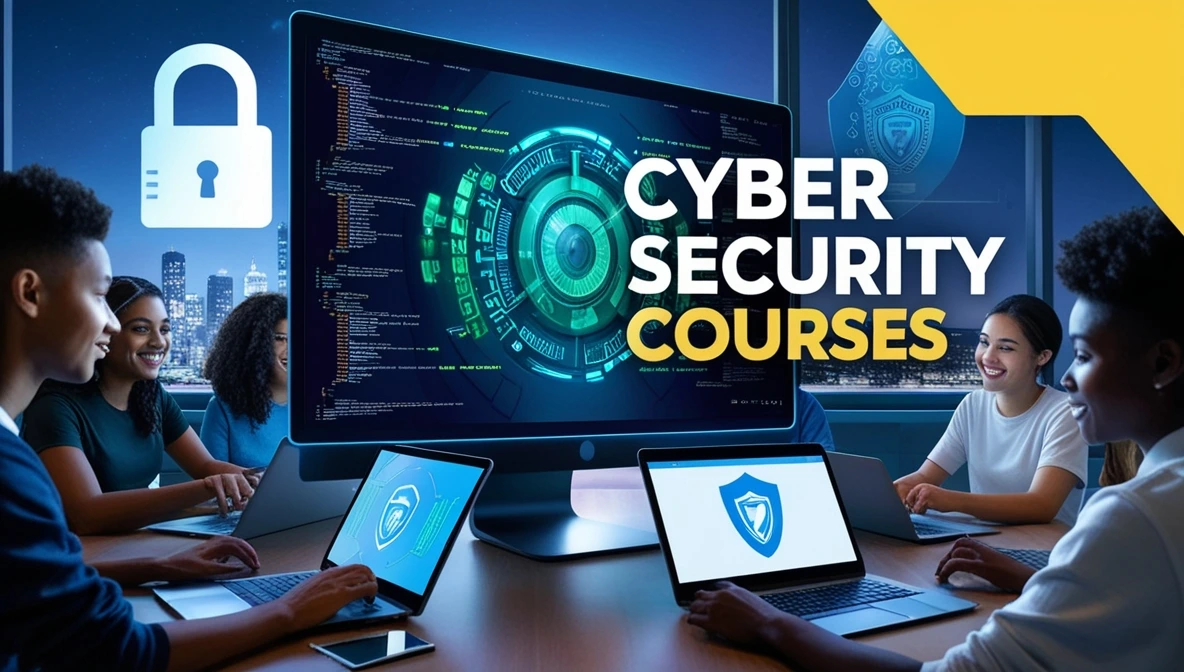Cyber Security Courses have become one of the most sought-after educational paths in today’s digital-first world. From protecting sensitive business data to preparing professionals for specialized IT roles, these courses play a crucial role in modern cyber defense. However, there’s an important distinction between Cyber Security Courses designed for companies and those created for individuals seeking certifications. Understanding these differences can help organizations and learners choose the right path for their specific goals.
The Purpose Behind Cyber Security Courses
At their core, Cyber Security Courses aim to build awareness, technical skills, and defensive strategies against cyberattacks. Yet, the audience and purpose of these courses often determine their structure, depth, and outcomes.
- Corporate-focused courses are designed to improve team security awareness, prevent insider threats, and ensure compliance with regulations.
- Individual certification courses, on the other hand, focus on helping professionals build credentials, master technical tools, and advance their careers in cybersecurity.
Let’s explore how these two approaches differ and what businesses should consider when choosing the right training format.
1. Cyber Security Courses for Companies: Team-Centric and Practical
When designed for organizations, Cyber Security Courses focus on building a company-wide security mindset. The goal isn’t just to train IT staff — it’s to ensure every employee understands how their actions affect the organization’s safety.
Key characteristics include:
- Employee Awareness Programs: Teach staff how to recognize phishing, handle sensitive data, and follow internal security policies.
- Role-Specific Training: Tailored modules for departments like finance, HR, and operations.
- Hands-On Exercises: Simulated cyberattacks that test real-time decision-making.
- Compliance Alignment: Helps businesses meet industry standards like ISO 27001 or GDPR.
These courses prioritize practical understanding over complex technical depth, making them accessible to non-technical employees while still improving the company’s overall defense posture.
2. Individual Cyber Security Courses: Career-Focused and Technical
In contrast, Cyber Security Courses designed for individuals tend to be more technical and specialized. They focus on developing expertise for career advancement or certification.
Common features include:
- Comprehensive Modules: Cover areas like ethical hacking, network defense, penetration testing, and malware analysis.
- Certification Preparation: Designed for exams like CompTIA Security+, CEH (Certified Ethical Hacker), CISSP, or CISM.
- Lab-Based Learning: Students practice with real tools, such as firewalls, SIEM systems, and penetration testing frameworks.
- Career-Oriented Goals: These courses help learners qualify for cybersecurity roles in IT departments, consulting firms, or government agencies.
While these programs are excellent for building professional credentials, they don’t necessarily teach the organizational awareness skills that business teams require.
3. Duration and Learning Format
The duration and delivery format of Cyber Security Courses also vary depending on their target audience.
- Corporate Training: Usually shorter, modular, and continuous — such as monthly sessions or annual awareness campaigns. Delivered online, on-site, or through hybrid learning models.
- Individual Courses: Often longer and intensive — ranging from a few weeks to several months, with self-paced online or instructor-led formats.
This flexibility ensures businesses can minimize downtime while individuals get a deeper dive into specialized subjects.
4. Measuring Success: Awareness vs. Certification
For companies, success in Cyber Security Courses is measured by reduced incidents, improved employee response times, and compliance achievements. For individuals, it’s about earning credentials and demonstrating mastery.
Companies measure success through:
- Fewer phishing click rates
- Improved security culture
- Meeting audit or regulatory requirements
Individuals measure success through:
- Passing certification exams
- Advancing to cybersecurity roles
- Gaining practical technical skills
Both approaches contribute to the global cybersecurity ecosystem — one by strengthening organizational resilience, and the other by developing skilled professionals.
5. Cost and Return on Investment
Corporate Cyber Security Courses are generally priced based on the number of participants or enterprise licenses, making them cost-effective for teams. Meanwhile, individual courses often charge per student and may include exam fees.
From a business perspective, the ROI of company-focused training comes from risk reduction — avoiding costly breaches and downtime. For individuals, the ROI is career-oriented — increased job opportunities, salary growth, and skill development.
Final Thoughts: Choosing What Fits Your Needs
Whether you’re a business protecting your data or a professional advancing your career, Cyber Security Courses play a vital role in strengthening digital resilience. For companies, these courses create a unified, aware, and security-conscious workforce. For individuals, they open doors to specialized careers and certifications.
At CyberGuardiansLLC, we provide tailored cybersecurity training programs designed specifically for businesses. Our goal is to help teams build awareness, minimize risks, and maintain long-term data protection. Explore our enterprise solutions today and empower your workforce to defend against tomorrow’s cyber threats.


No Comments